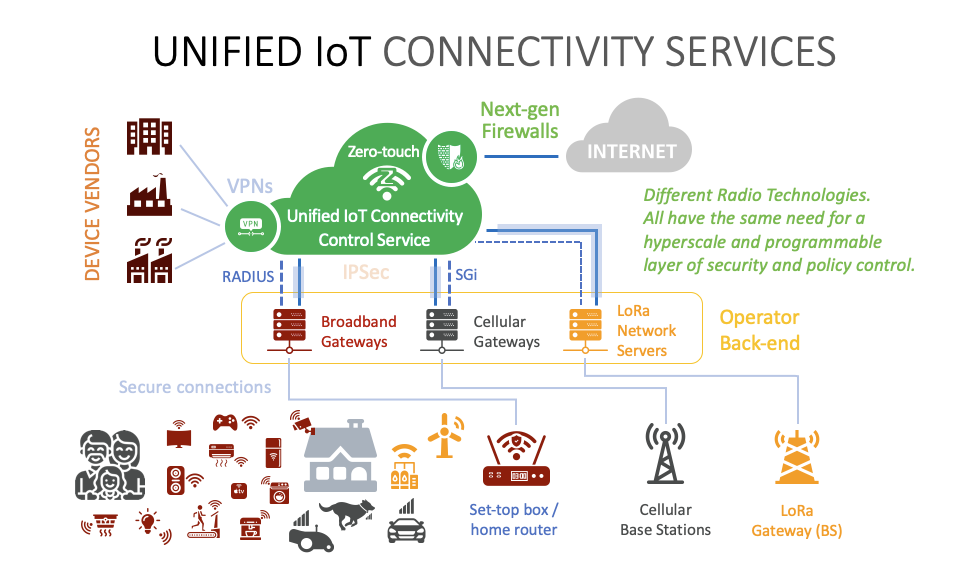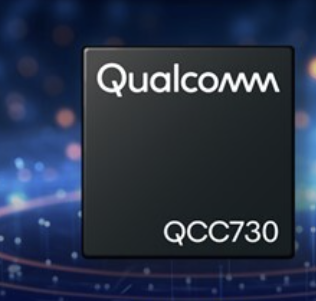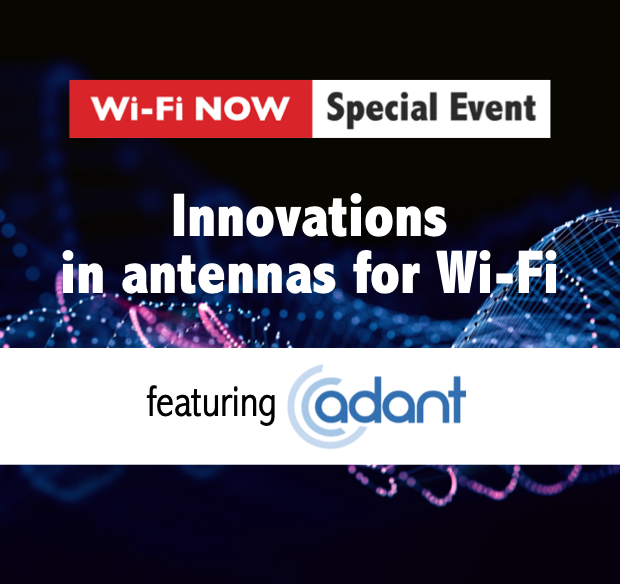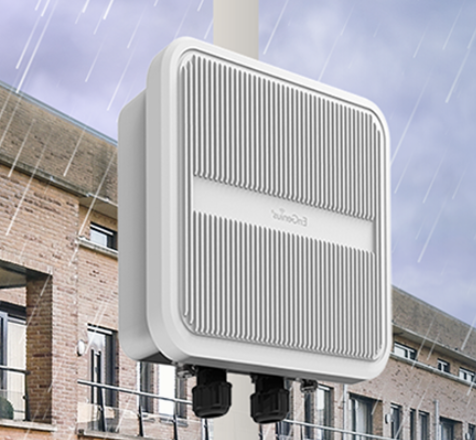 By Claus Hetting, Wi-Fi NOW CEO & Chairman
By Claus Hetting, Wi-Fi NOW CEO & Chairman
Radio access networks may be many and varied – but IoT services don’t have to be. In fact, a unified so-called ‘Connectivity Control Service’ (CCS) in the Cloud could be the key for operators to create and manage mass-market IoT service across any radio network including smart home Wi-Fi, cellular networks, or even LoRa. This new architectural idea is the brainchild of service management leaders Aptilo, today a part of Sweden-based telco software solution provider Enea.
Telcos often operate multiple networks serving many kinds of IoT services, which makes creating and managing consistent and secure IoT services both complex and costly. Now the Wi-Fi service management experts and IoT connectivity innovators from Aptilo say that a unified, fully Cloud-based approach to managing IoT connectivity is the way forward.
Aptilo’s idea is to use hyperscalers – meaning massive Cloud-based service providers such as Amazon AWS – and add a programmable and flexible layer of IoT security and policy control as a service. Thus far the idea has materialised as a service for mobile (cellular) operators hosted on AWS.
In this case Aptilo is partnering with security vendor Fortinet for the Aptilo IoT Connectivity Control Service™ (IoT CCS), where Aptilo manages the policy control while using next-generation FortiGate firewalls for IoT security and VPNs. This new hyperscale IoT architectural concept for telcos could turn out to be a promising solution also for providers of home Wi-Fi services, says Aptilo.

“This type of architecture resolves loads of operator challenges in one go. For example: Management of IoT services – whether for the home with Wi-Fi or over cellular networks – would be unified. Not only would IoT connections themselves be secure but extra sensitive data such as firmware updates and analytics could be secured by VPNs. Our view is that this could evolve into the single hyperscale core for convergent IoT connectivity,” says Jonas Björklund, CTO at Aptilo.
The IoT Connectivity Control Service (IoT CCS) would serve all essential IoT service functions, including security and policy control for any IoT device and any service on the operator’s network. Enterprise customers and in some cases device vendors would be offered self-management of security and policies through web portals. And any access to the open Internet would be secured through firewalls, which is of course critical for maintaining telco-grade security. Traffic would also be monitored for anomalies and intrusions, Aptilo says.
All that the service providers would need to do is to send all IoT traffic to the IoT CCS – the ‘Connectivity Control Cloud’ – through secure connections with their gateways and integrate through standard interfaces for policy control (also see the graphic below), Aptilo says.

“We believe this would be the right way to introduce a programmable layer of security and policy control for telco-grade IoT services, with all the right flexibility built-in. This would be true hyperscale architecture allowing telcos to scale their IoT offering and management indefinitely,” Jonas Björklund. More than that, Cloud-based functions could include so-called zero-touch onboarding of Wi-Fi devices, a solution that is already offered by Aptilo Networks – read more about it here.
Aptilo – today a part of Enea – is perhaps the most experienced dedicated provider of Wi-Fi service management platforms in the world with more than one hundred service provider deployments handling both public and B2B Wi-Fi. Enea is now one of the very few vendors offering solutions for both Wi-Fi and 5G. “We are currently evolving our platform architecture to meet new operator demands for operational efficiency, flexible service creation, and scalability in the 5G era,” says Jonas Björklund says.
/Claus.









